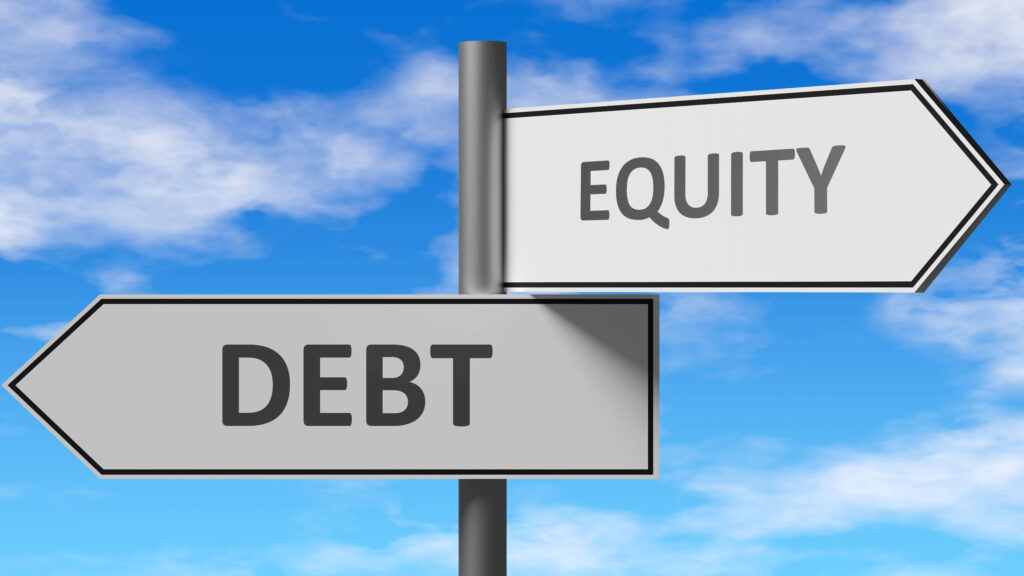Real estate investors have enjoyed a few good years of solid equity opportunities. One common investing strategy is known as the fix-and-flip. The pandemic of 2020 created massive opportunities for real estate equity investors in many markets around the country. Even before then, real estate equity had a good run as a solid investment strategy. Ground-up development, single-family real estate, and multifamily developments were all red hot until the beginning of this year when economic changes began to take root.
Like the wind, markets can change.
In the last six months, the real estate market has shifted causing a decline in equity investment opportunities and a rise in debt investing opportunities. What happened?

3 Market Dynamics That Caused the Shift
There are generally four key factors that drive any real estate market. These are:
- Demographics
- Interest rates
- The economy
- Government policies
For the past few years, real estate investors have enjoyed a robust economy. Interest rates were low, prices were affordable, there was a low supply of homes on the market and high demand for home ownership, and other economic indicators were mostly positive. Things seemed as if they might continue to be ideal for all types of investors. Suddenly, the market shifted and some of these conditions quickly disappeared.
What was not affected was the supply of homes on the market. However, the pandemic created a shortage of building supplies that, when corrected, led to huge demand and rising prices. That in turn fed the price of homes on the market. Home prices began to rise.
As we pulled out of the pandemic, consumer prices overall surged, and inflation reached a peak. That led the Federal Reserve to adjust its monetary policy.
To combat inflation, the Fed raised interest rates. In fact, the Fed raised rates multiple times this year, moving them from historic lows to the 3.25 percent range.
This turnaround in the overall economy has had a significant impact on real estate investing toward the end of 2022 and going into 2023. But there is one other economic reality that has affected real estate investors. There’s been a shift in consumer demand for buying homes.
These three market forces—rising interest rates, a shift in economic forces in general, and a slowdown in consumer demand for home buying—are not isolated. They feed into each other like tributaries running into a larger body of water. Nevertheless, these three market forces have shifted the opportunities for investors from equity-type investments to debt investing. Let’s have a closer look to see why.

Debt Investing Could Offer the Best Value in the Short-Term
A recent article by Invesco highlights the short-term opportunity in debt investing. To summarize:
- Rising interest rates have pushed debt costs beyond capitalization rates (cap rates)
- The Mortgage Credit Availability Index fell from 126 in February this year to 108.8 in July
- The average loan-to-value for loans closed has fallen from 61 percent in Q3 2021 to 57 percent in Q2 2022 while total financing has increased
- Both commercial cap rates and apartment cap rates declined between June 2021 and June 2022, while Commercial Mortgage-Backed Securities spreads and Secured Overnight Financing Rates increased
Invesco’s conclusion, based on the data presented, is that there is potential for lenders to recapitalize debt at higher rates, which would shift the relative value to debt investing. Furthermore, tightening lending standards across the board favors debt financing.
That’s not to say that equity investing is not at all valuable in today’s market. The market could shift again in a few weeks or months, but in the short-term, debt investing could be the better bet.

Investing in the Trade-Off
Real estate markets move in cycles. Generally, the cycles include expansion, hyper-supply, recession, and recovery. Despite the slowdown in the economy and rising interest rates, there’s good evidence to believe we are entering a period of market expansion.
Coming out of the pandemic, the economy had to recover from the effects of the pandemic. We saw that in late 2020 and throughout 2021. We have not reached a point of oversupply in real estate since demand is still high. While builders have been busy in much of the country, the production has not brought the supply of homes in line with demand. What that spells, in terms of where we are in the market cycle, is the beginning of an expansion phase.
Economists don’t agree on whether the Fed’s rate hikes are lowering inflation, but there’s some evidence that it’s beginning to have an effect. A slowdown in home buying doesn’t mean a halt. It just means consumers aren’t buying as fast as they were last year. Once inflation is under control, we should see an uptick in homebuying activity.
That will lead to further adjustments where buyers and sellers will jockey for the right market price.
In the private debt market, short-term rates should stay low for a while as long-term rates rise. That’s because lenders are reluctant to lend for big-ticket items such as homes and automobiles. This lending environment will favor real estate investors looking to buy and hold, invest in rental properties, and place bets on debt instruments.
Many people are still concerned about the situation in Ukraine. That has been a catalyst for rising energy prices, but it won’t go on forever. There certainly are geopolitical risks, but there is a lot of positive energy in the markets too.
Other factors influencing the real estate market include the trend toward hybrid work, a labor shortage that should ultimately iron itself out once inflation and the overall economy settle, and regulatory uncertainty. As a reminder, rising interest rates are lowering housing prices while increasing the cost of capital, a supply-demand imbalance in the housing market keeps investors looking for deals, and inflation is shifting the market. While these forces aren’t entirely positive, they’re also not entirely negative.
There are still reasons to be optimistic about real estate investing. The shift from real estate equity to debt investing could be a short-term shift that, once it has run its course, could give buy-and-hold investors even more options. Remain flexible, but keep an eye on the market forces and pivot your investment strategy accordingly.


